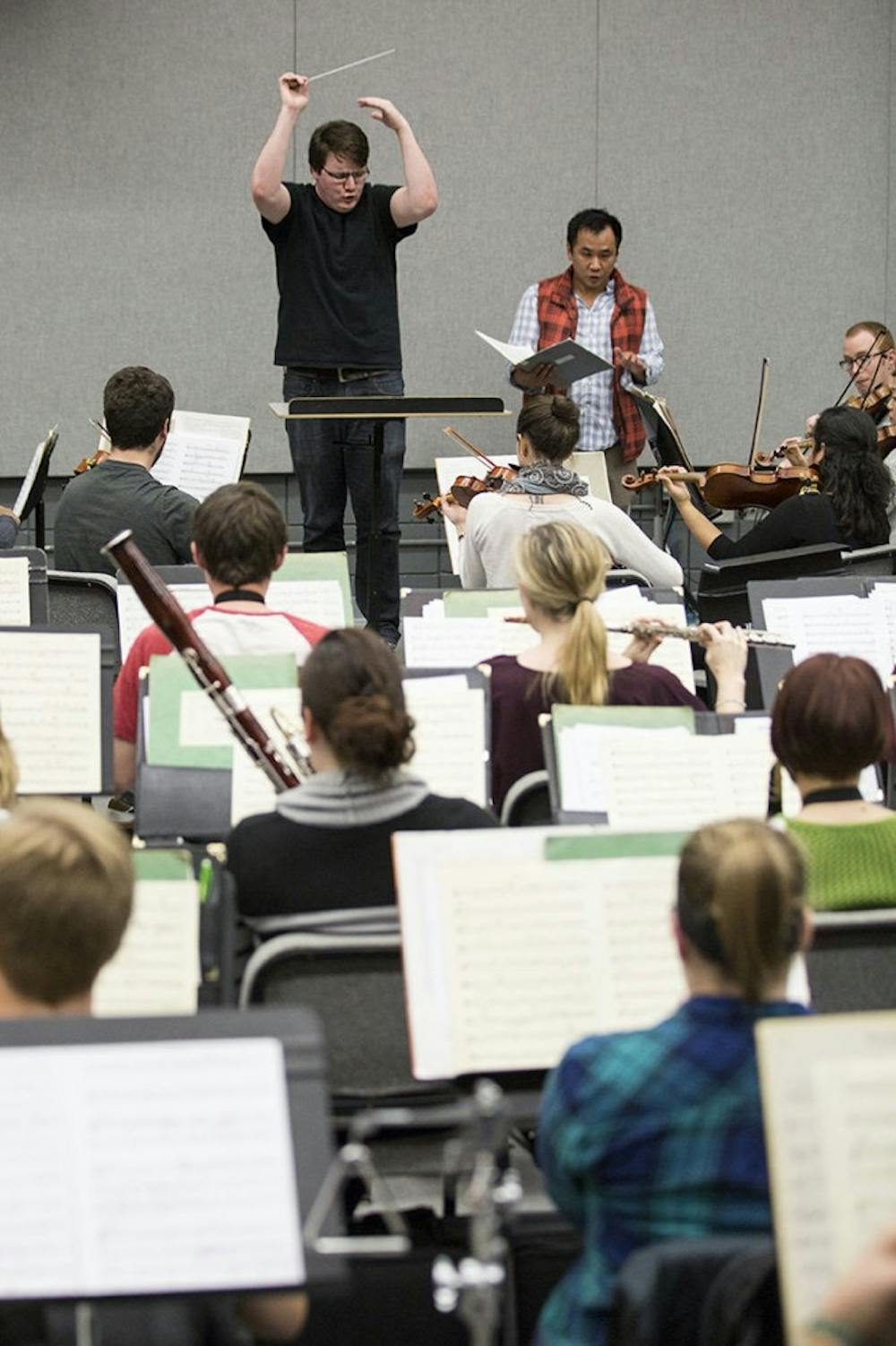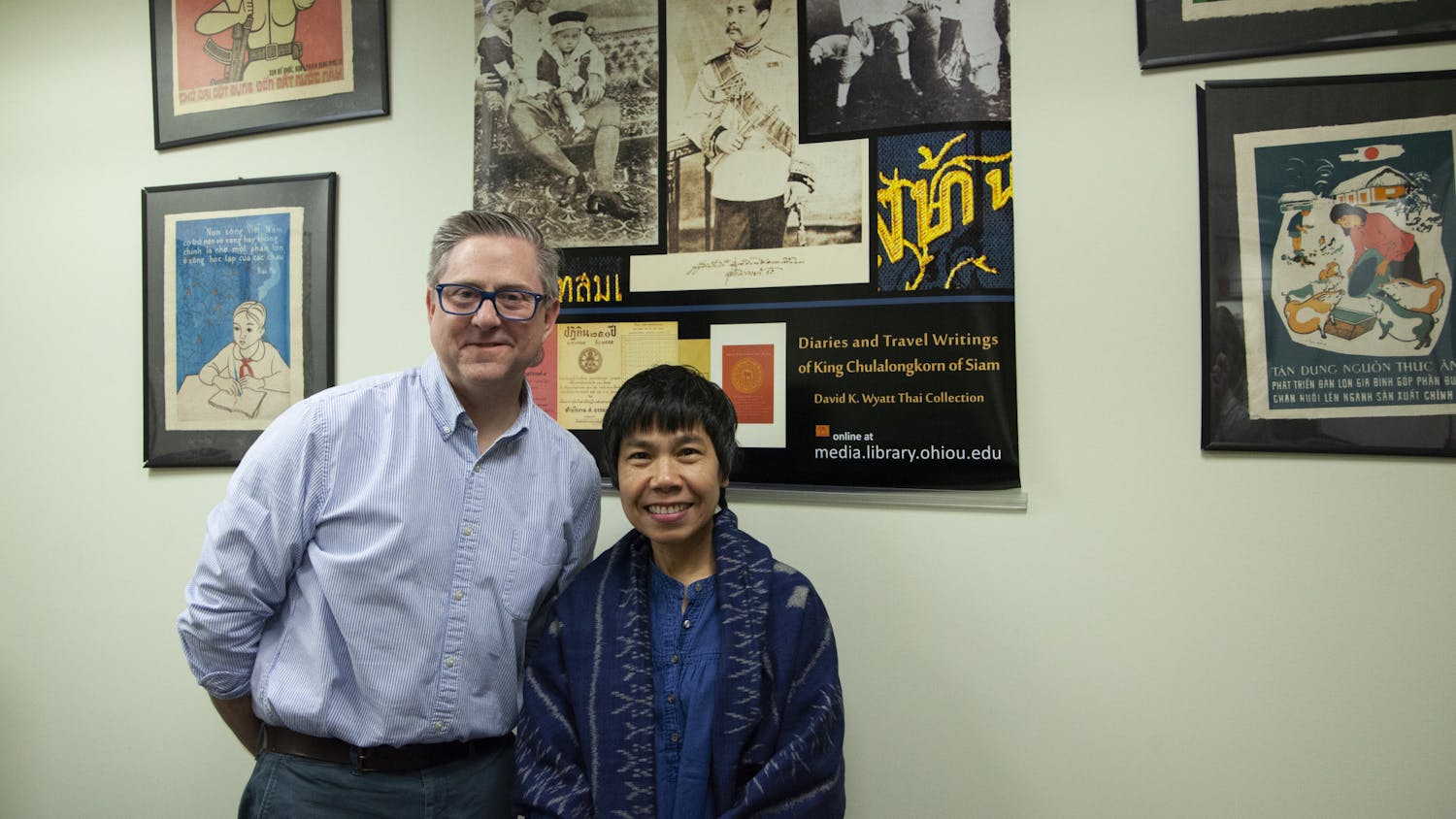Only a few graduate students are pursuing a degree in conducting.
Jordan Alfredson said conductors tend to receive a lot of credit for a great performance, but he refuses to take a bow without the orchestra at the end of a performance.
“You have a big impact over what’s happening, but you’re not making a sound,” Alfredson, a second-year graduate student studying orchestral conducting, said. “The final result really is from the work of the musicians, so that has to be recognized. The conductor shouldn’t always get all the glory.”
Alfredson is the only graduate student pursing a degree in orchestral conducting in the School of Music, but there are other focuses within conducting. Andrew Trachsel, director of bands and associate professor of conducting, said in an email there are two students who focus on conducting of wind band. Daniel Hall, director of choral activities, said there are two graduate students with a focus in choral conducting.
Steven Huang, Alfredson's instructor, said all of the teachers have a similar way of auditioning students into the program, which includes conducting an ensemble, an interview and an examination of musicianship.
Students pursuing conducting are not obligated to have a student recital, Huang, an associate professor of instrumental conducting-orchestral, said, but for Alfredson’s upcoming Saturday recital in Glidden Recital Hall, it's an opportunity to prepare for a concert without much assistance.
Alfredson said his initial interest in conducting came when studying for his undergraduate degree at Kennesaw State University in Georgia.
{{tncms-asset app="editorial" id="f1223d2a-83e7-11e5-b35b-6fbeb585c648"}}
“During my undergrad, I was interested in doing something more,” Alfredson said. “I always felt I was a natural leader, so it felt natural for me to move into that role.”
Ideally, Alfredson said conductors are well-rounded musicians who should be able to play an instrument well and have a technical and historical knowledge of other instruments. He added that general music knowledge is required along with a good ear for listening.
Being a conductor goes beyond being on stage and includes extensive research, he said.
“They study for hours understanding each line, every instrument, the technical requirements of the instruments (and) the stylistic function of each instrument within particular pieces,” Alfredson said. “The physical gestures conductors use are supposed to convey that.”
Alfredson’s recital is set to include Samuel Barber’s “Adagio for Strings,” J.S. Bach's “Brandenburg Concerto No. 4” and Pyotr Ilyich Tchaikovsky’s “Serenade for Strings.”
“A lot of preparing for rehearsals is determining what is going to be a problem with the musicians and hopefully touching on that as soon as possible so it can be worked out,” he said.
Alfredson said finding the difficult elements is usually technically based, such as looking for a fast section of 16th notes or blending together two instruments with contrasting rhythms.
Although Alfredson and Huang meet twice a week, Huang said a portion of the learning comes from rehearsal. The rehearsal is similar to a master class or open lesson where criticism is given during the rehearsal. Huang added that the teaching style can create an interesting dynamic.
“A lot of students are not used to getting criticism in front of other people, but I find it very important for students and the orchestra to hear these things because then the orchestra will learn a lot of about what conducting is as well,” Huang said.
Yvonne Staton, a junior studying music therapy, plays the oboe in the Symphony Orchestra, which is conducted by Huang and Alfredson.
Although a college ensemble can usually keep a beat on an easier piece, Staton said conductors are beneficial for a more complicated piece. She said the conductor gives the group stability and keeps everyone together.
{{tncms-asset app="editorial" id="cb032bde-8bc3-11e5-891d-8b2995798fb7"}}
“It can be kind of chaotic if you don’t have a pulse,” she said. “If you don’t have someone who can consistently keep organization, … it can get very confusing.”
Although Alfredson spends hours studying the score for a concert and has multiple rehearsals, he said his favorite part is performing on stage.
“My favorite part, it’s kind of cliché, but the performance because you can really let loose," he said. "At that point, what’s going to happen is going to happen, so you do your best to let the music take you in and try to inspire someone on stage."
@liz_backo
eb823313@ohio.edu






